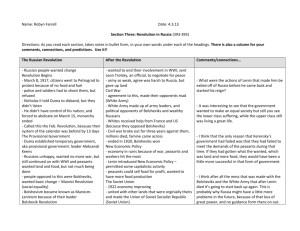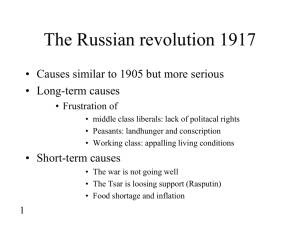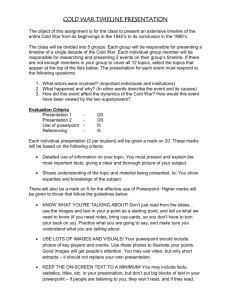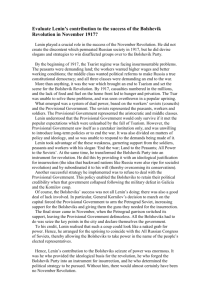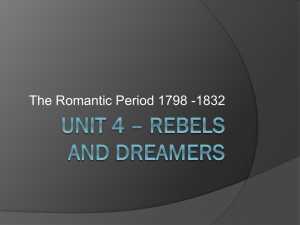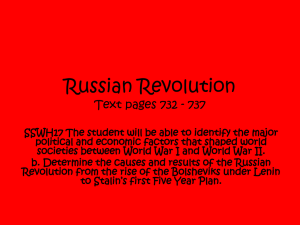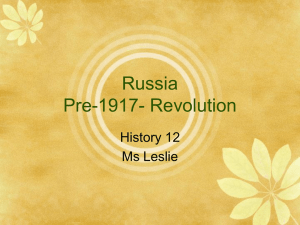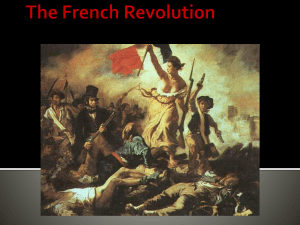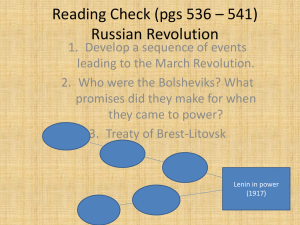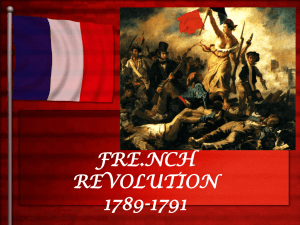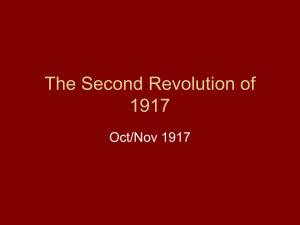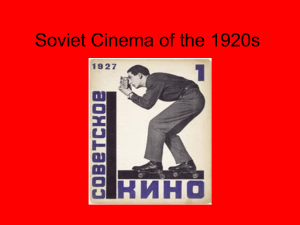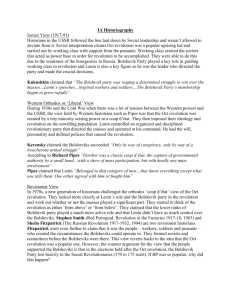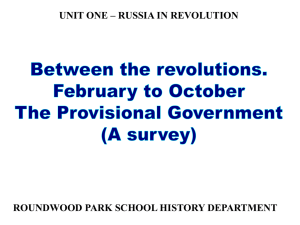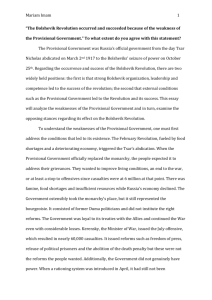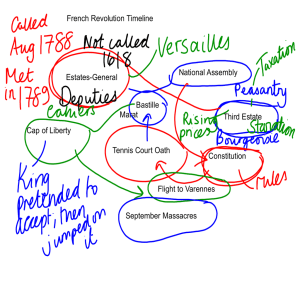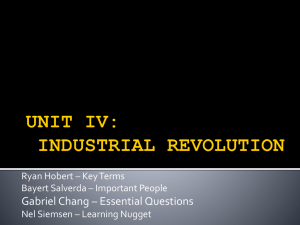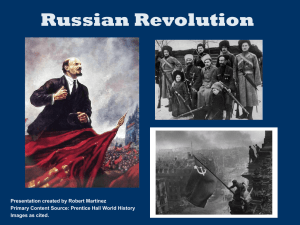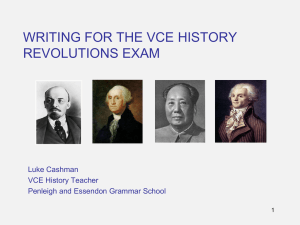October Revolution presentation
advertisement
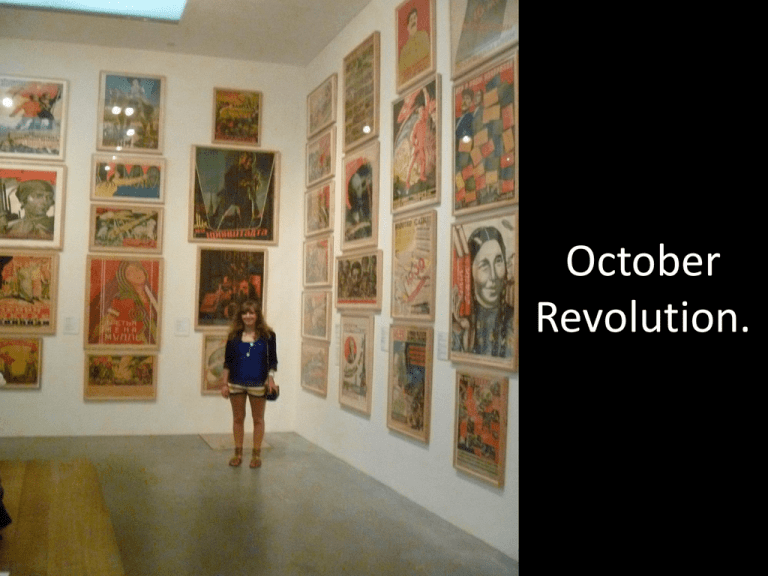
October Revolution. Type of Revolution. There is an ongoing historiographical debate about whether the October Revolution was a: 1.Proletarian/Popular Revolution or 2.a Coup D’état This debate continues because of the varying political views of historians about whether Communism is a good or evil system. Proletarian/Popular Revolution. There was increasing support from workers to the Petrograd Soviet because of limitations being imposed on workers organisations. Soldiers- still some front-line patriotism, but no so in the garrisons, plus more peasant soldier support. By September there was further evidence of popular impatience- army officer’s authority declined, more strikes and peasants against private land ownership. However, the November elections reflected Bolshevik’s lack of support BUT in some areas of Petrograd they gained nearly as much as 70% support! Coup D’état. Constituent Assembly elections show that the Bolsheviks were not that popular but they did have key support in Moscow and Petrograd (the centres of power) Bolsheviks not prepared- the July Days (covered in causes) Historiography for Type G. Hosking: “…the Bolsheviks rode to power on the crest of a groundswell generated by the mass of people.” Robert Service: “The conditions for a seizure of power with the sanction of exhausted workers, war-weary soldiers and angry peasants could hardly have been more favourable.” Beryl Williams: notes that the people may have supported the Bolsheviks, but they hardly knew what Bolshevism stood for. There was significant evidence pointing to that is was a coup. Richard Pipes: A “clandestine coup d’état” Sheila Fitzpatrick: claims it was the workers, soldiers and peasants who created the circumstances for Bolshevik success. Christopher Read: claims that Lenin was a key figure, but there was also a lot of independent action at local level. Causes of Revolution. Briefly speak about what the provisional government is, the Soviet (including Order No. 1), the April Theses and Trotsky joining Lenin and believing in a worldwide revolution. Go into more detail with the problems the government faced: •The war- keeping the allies happy, the summer offensive. •Economic hardship – can’t feed the people. •Land – issues with the peasants and land owners. •National minority demands – wanting independence. •July Days •Kornilov Affair Historiography for Causes J Charmichael: claims that the people were fatigued, angry and had a strong desire for revolution to gain “peace, bread and land…” Robert Service: “for most of the year the Provisional Government survived on guile and rhetoric.” – sly and cunning intelligence Rabinowitch: (can also be used for type) states that the long-term causes (War, land etc.) contributed strongly to the unrest of the masses made “the desire for an end to the coalition government very nearly universal” Kowalski: argues that the whole political system of Russia at the time was a victim of many “unpredictable accidents” eg. The Kornilov Affair. Richard Pipes: states that “it was only a question of time before Kerensky would be overthrown by someone able to provide firm leadership.” Example Questions Type 1. To what extent was October a “proletarian revolution” rather than a “coup d’état”? (2010) 2. How important were the contributions of Lenin and Trotsky in bringing about the October Revolution?(2004) Causes 1. To what extent can the decline of the Provisional Government be dated from the July Days?(2006) 2. “Peace, bread, land”. Is this an adequate explanation of the October Revolution?(2003)
